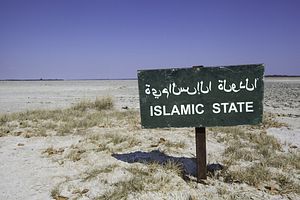The Shangri-La Dialogue, Asia’s premier security summit, kicked off in Singapore on Friday with a keynote speech by Singapore’s Prime Minister Lee Hsien Loong.
Lee’s speech addressed three issues: the balance of power; regional cooperation and terrorism. Unsurprisingly, the terrorism portion of the speech focused on the threat of the Islamic State in Iraq and Syria (ISIS) to Southeast Asia. As The Diplomat has noted, Singapore has been calling for greater regional cooperation to combat ISIS, with the city-state even holding its own counterterrorism symposium last month (See: “Singapore Kicks Off New Counterterrorism Symposium”).
In his speech, Lee noted that Southeast Asia has emerged as a “key recruitment center” for ISIS, with more than 500 Indonesians and dozens in Malaysia joining the group and forming their own unit, the Katibah Nusantara (Malay Archipelago Combat Unit). He also listed some troubling trends in Southeast Asia, including local radical groups pledging allegiance to ISIS and attacks being plotted in Malaysia (See: “Malaysia Says New Terror Group Trying to Create Islamic State”). “The threat is no longer over there; it is over here,” Lee said.
But the most alarming concern Lee raised in his speech was the prospect of ISIS establishing a base somewhere in the region. Lee dismissed ISIS’ plan to turn Southeast Asia into a province of a worldwide Islamic caliphate as a “grandiose, pie-in-the-sky dream.” But he said it was possible that ISIS could gain a territorial foothold in the region in the same way it had done in the Middle East, thereby posing a serious threat to the whole region.
“But it is not-so far-fetched that ISIS could establish a base somewhere in the region, in a geographical area under its physical control like in Syria or Iraq…That would pose a serious threat to the whole of Southeast Asia,” he said.
As alarming as Lee’s concern is, it is not entirely unfounded. Other Southeast Asian states are wary of ISIS attempts to move in this direction, even though their worries are only occasionally communicated publicly. For example, Malaysia has been warning over the past few months that the Islamic State threat in the country is not just restricted to individual attacks, but a broader plan to create a presence in Malaysia and infiltrate parts of the state – including universities, the armed forces and even political parties – to establish an Islamic country. In April, Malaysia foiled a plot by an ISIS-inspired terror cell which was not just planning an attack, but intended to raid army camps and police stations to boost its arsenal of weapons and rob banks to fund its activities. As I noted at the time, the country’s police chief Khalid Abu Bakar said they were “establish an Islamic country a la ISIS in Malaysia.” (See: “Malaysia Says New Terror Group Trying to Create Islamic State”).
Of course, it can be difficult to determine the exact severity of the terrorism threat. Governments are prone to oscillating between periods of overestimation and underestimation, and they may also choose either course to advance other political ends. But Lee emphasized that Singapore was taking ISIS “very seriously” given its own realistic threat assessment and its potential effects on the region. For instance, he pointed out that the city-state was an active member of the international coalition against ISIS, contributing a KC-135 tanker to the operation whose deployment to the Middle East began on May 29.































